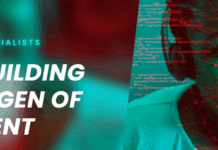Samsung has officially wrapped up the 2025 “Solve for Tomorrow” Design Thinking Workshops in South Africa, which took place between 10 April and 30 May, with some of the country’s brightest and talented young minds.
These Design Thinking Workshops were part of Phase 2 of the competition – where the top 20 schools were invited to collaborate and develop paper prototypes of their solutions. This phase has offered learners from various schools in the country, an opportunity to experience hands-on collaborative guidance from Samsung’s mentors who helped them to tackle the next phase of their prototype developments.
Themed: “Infrastructure and Safety” – the Design Thinking workshops in the Samsung Solve for Tomorrow competition are designed to equip learners with the skills to transform their ideas into workable solutions, particularly those addressing community challenges. The recent workshops focused on critical thinking, human-centred problem-solving and collaborative design.
According to Lefa Makgato, Corporate Social Responsibility Manager for Samsung Electronics in Southern Africa: “It was amazing to see how well the school learners and their educators that participated in this year’s Design Thinking Workshops responded to their assigned mentors and the experience as a whole. Both the learners and their educators found this experience engaging and beneficial for their learning and design processes.”
“As Samsung, we believe that the activities that these learners engaged in during the workshops are meeting the overall objectives of the Solve for Tomorrow competition. This competition has, from the onset, been seeking to foster collaboration among the learners, educators and their mentors as well as to develop their skills and promote a growth mindset. Importantly, this experience has now encouraged independent learning, challenged the learners’ perspectives and allowed their mentors the opportunity to provide them with valuable feedback.”
Some of the aspects of the Design Thinking workshops included the following:
- Skills Development: Learners have gained valuable skills in translating their ideas into practical solutions that can solve their respective communities’ problems.
- Human-Centred Design: The workshops emphasised understanding user needs and created solutions that can address real-world challenges.
- Cognitive & Structured Processes: Participants have now learnt structured processes for creative problem-solving.
- Collaboration & Communication: The workshops have fostered teamwork and improved the learner’s communication skills, which are essential for successful project development.
- Prototype Development: These workshops have now successfully prepared learners for the next phase of the competition, where they will develop and present their prototypes.
- Inspiration & Motivation: The workshops are designed to foster a mindset of innovation and problem-solving, encouraging learners to “think, speak and act like designers.
- Support for Teachers: The workshops have also gone an extra mile as they have benefitted the teachers as well. This platform and the mentors have provided the tools and guidance for the educators to support their learners in the next, prototype development phase.
And furthermore, with the help of Samsung mentors – the workshops have cultivated a mindset of innovation and great problem-solving skills. The Samsung team is convinced that the solutions developed by the brilliant learners in conjunction with their educators during this year’s workshops – have the potential to make a real difference in their respective communities.
Makgato added: “We are pleased with the impact and outcomes of this year’s Design Thinking Workshops. And, we are certain that these workshops have achieved the objective of enhancing the learners’ ability to identify, analyse and solve problems creatively and effectively.
“As Samsung, we remain committed to using programmes such as the Solve for Tomorrow to bridge the country’s resource gap in STEM education. We believe that by fostering innovation and social impact through technology, we also inspire learners to use their skills to improve their respective communities,” she concluded.
Article Provided


























